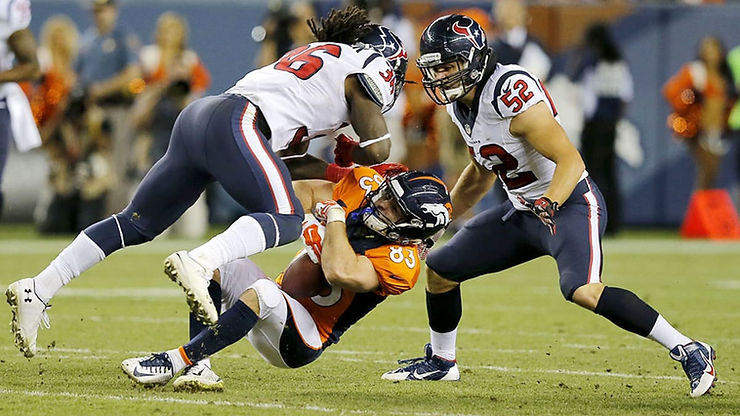By: Kyle Zhu
“It’s a combination of raw caveman strength and gladiatorial combat and the most complicated chess match you can ever imagine,” says Charlie Camosy, a big fan of football who describes it as one of the best sports to watch. However, as a professor of Christian ethics, he finds himself grappling with ethical concerns each time he watches football. The sport, known for its violence and brutality, has raised doubts about its safety.
During the early days of the game, scholars at Yale, Harvard, and Princeton were dying on the football field, causing President Theodore Roosevelt to threaten to shut down college football. In 1985, Lawrence Taylor’s tackle on Joe Theisman resulted in such impact that Theisman’s leg snapped in half, leaving blood and bone visible to millions. Kevin Everett, Buffalo Bills player in the NFL, suffered a life-threatening spinal cord injury where his lower body may be paralyzed for his whole life even after surgery, his surgeon says. These examples were only but a drop in the bucket.
“Football and violence is nothing new whatsoever,” says Frank Deford, a sports commentator for NPR. While rule changes have been implemented in the past to limit and reduce violence, during recent years it has reached a peak again, raising questions about whether the game can be corrected.
Research indicates that repeated concussions, which are common in football, can cause damage and increase the risk of amyotrophic lateral sclerosis (ALS), Alzheimer’s, and other brain-related diseases. Experts also suspect that repeated head trauma can lead to serious mental illness and even suicide, as evidenced by the many cases of self-harm by NFL players in the past.
Dave Duerson, a former player for the Chicago Bears, committed suicide and requested that his brain be donated for research on football injuries. This deeply affected Will Leitch, who says, “He was one of my favorite players. The idea that he was mush at the end, the way he committed suicide to make sure his brain could be preserved… It’s hard to then be like ‘Yeah, jack em up! Huge hits!'”
Despite the brutality of the sport, it continues to attract millions of fans. Football shares similarities with the ancient sport of gladiators, where charging and tackling increased hatred for opponents, and crowds celebrated victories, seemingly oblivious to the dangers. That’s why everyone loves it.
An average Sunday Night Football game attracts around 20 million viewers, while the Super Bowl reigns supreme with an average of 100 million viewers. Overall, the NFL dominates 22 out of the top 25 primetime telecasts of the year.
The question of whether football can be made safe for kids, adults, and professionals remains uncertain. Camosy ponders, “How long can I watch football and still keep my soul?”











